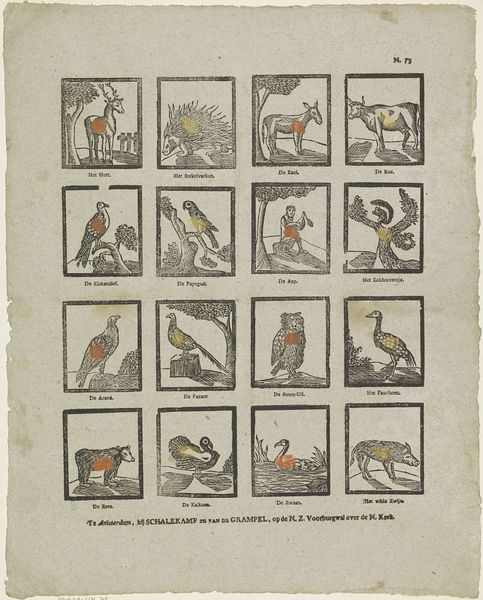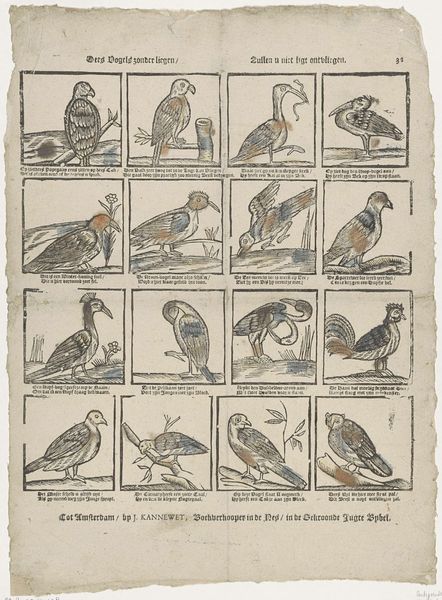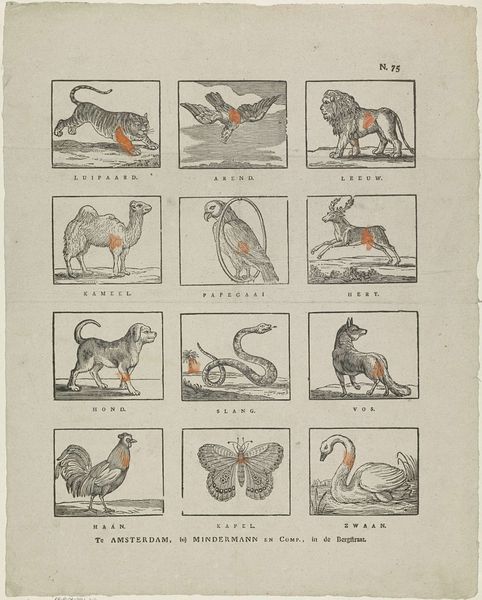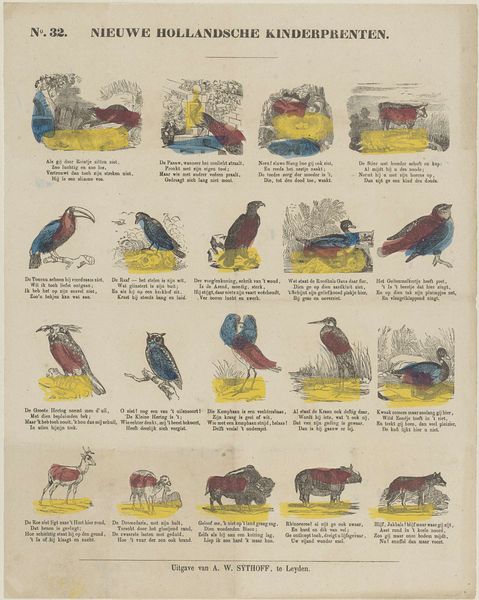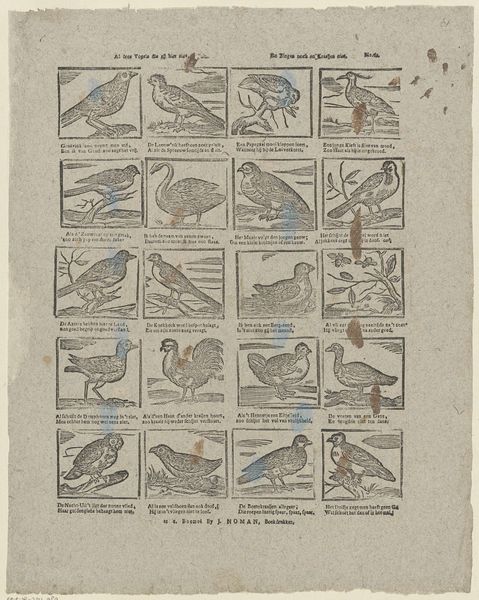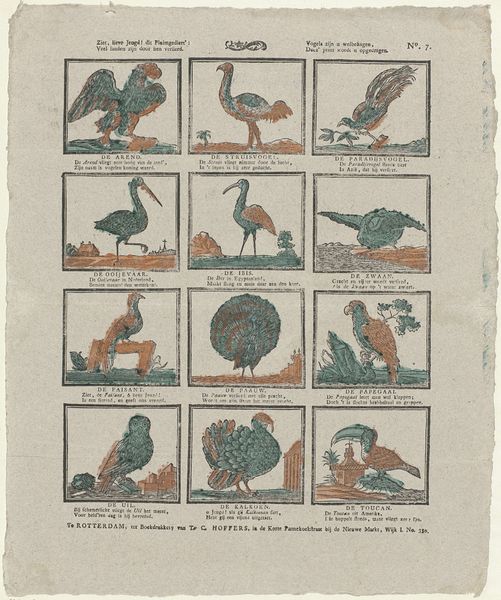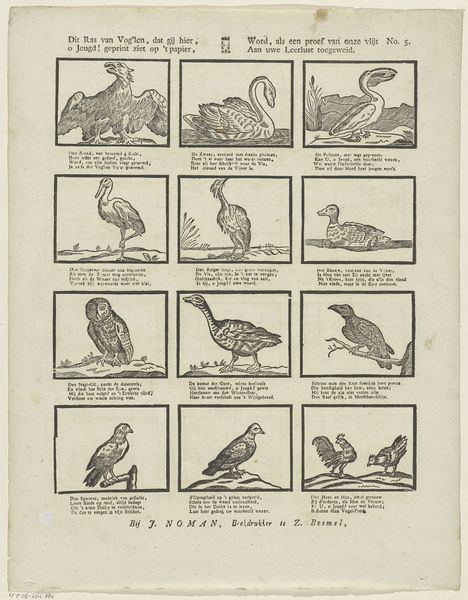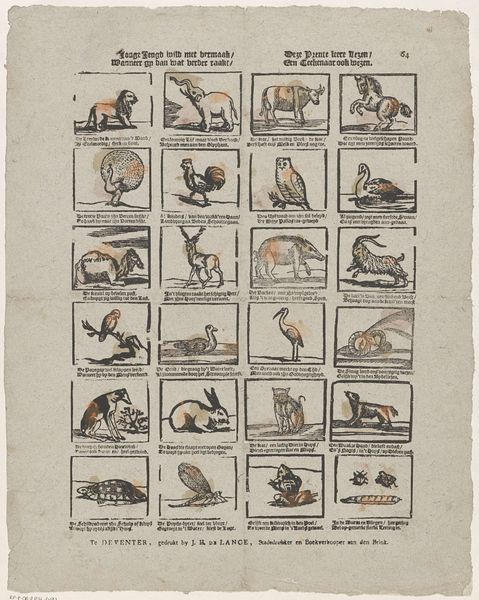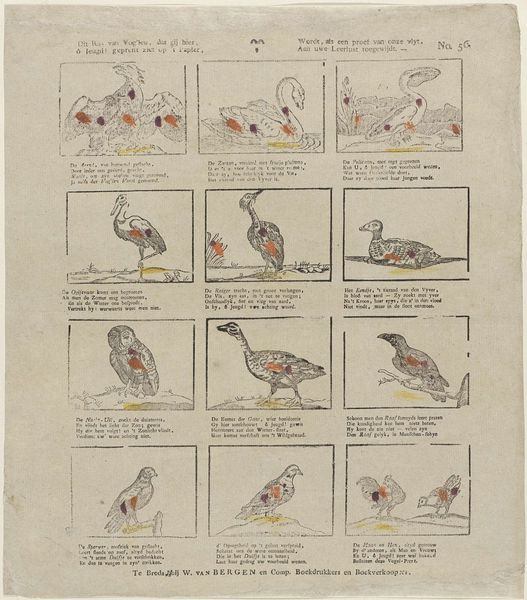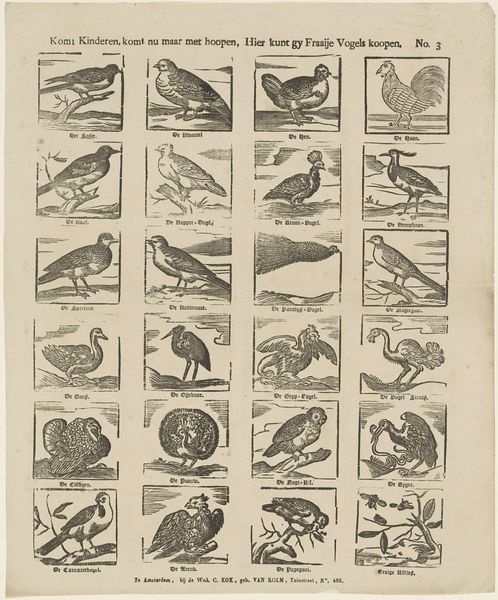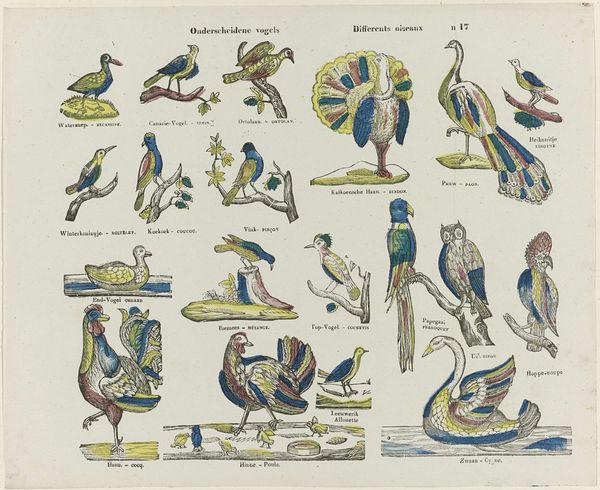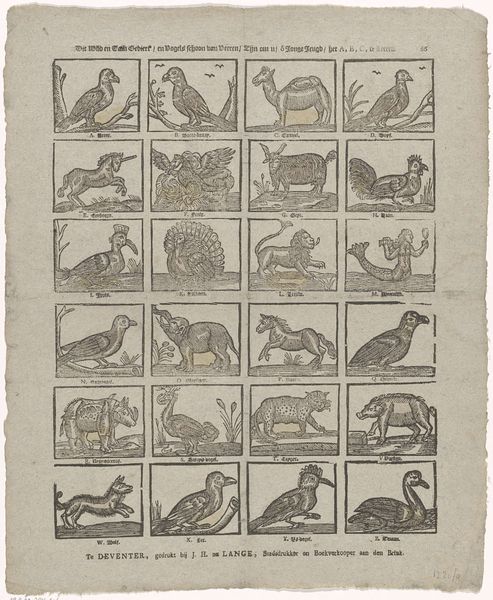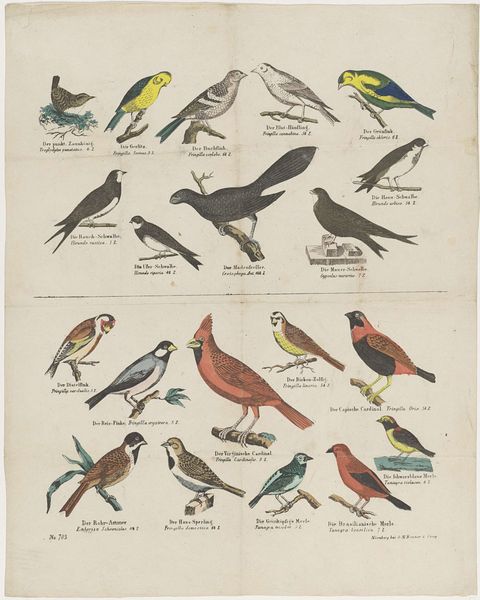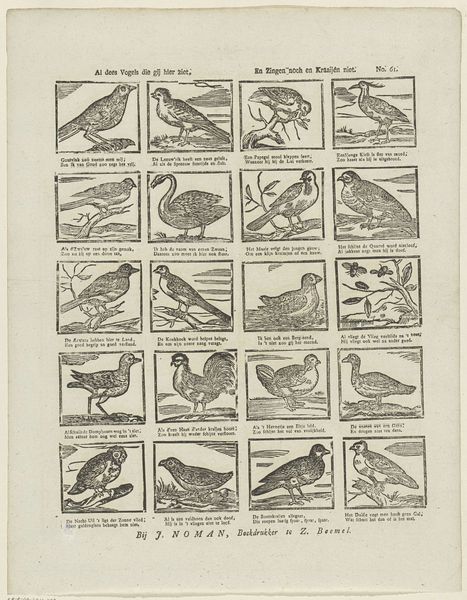
Ziet hier al weer een nieuwe prent; / Die m'om uw leerzaamheid u schenkt 1819 - 1840
0:00
0:00
alexandercranendoncq
Rijksmuseum
drawing, print, paper, ink
#
drawing
#
narrative-art
# print
#
bird
#
figuration
#
paper
#
ink
#
folk-art
#
genre-painting
Dimensions: height 410 mm, width 330 mm
Copyright: Rijks Museum: Open Domain
Curator: Editor: Here we have a print called "Ziet hier al weer een nieuwe prent; / Die m'om uw leerzaamheid u schenkt," created sometime between 1819 and 1840 by Alexander Cranendoncq. It’s a playful arrangement of different birds, almost like a chart. What draws my eye is how each bird has a dash of reddish-orange. What do you see when you look at it? Curator: Immediately, I am struck by the formal composition. The grid-like arrangement of these avian figures offers a sense of order, a controlled distribution of forms across the page. Consider the lines themselves: economical, precise. They delineate the essence of each bird without superfluous detail. Notice the consistency of the mark-making. How does that contribute to the overall aesthetic effect? Editor: I suppose the consistency creates a unified whole. The limited color palette emphasizes the graphic nature of the print too, right? Curator: Precisely. The strategic use of that single color – the reddish-orange you mentioned – disrupts the monochrome and draws the viewer’s eye, leading to an appreciation of the figure-ground relationship in each miniature tableau. Ask yourself, how does the flatness of the picture plane interact with our understanding of form? Editor: That’s a good point! I was focused on the representational aspect, but thinking about it formally really unlocks a different perspective. It’s not just about identifying the birds, but appreciating how they exist as shapes and lines in conversation with each other. Curator: And through understanding the structural devices employed by the artist, we grasp their aesthetic intention beyond mere illustration. The text also forms a crucial visual element here. How might it affect your analysis if the image were only the avian figures with the added textual descriptions below? Editor: Considering the piece as a formal study allows us to notice aspects we might otherwise miss! Curator: Indeed. By isolating elements like line, color, and composition, we achieve a more rigorous and nuanced appreciation.
Comments
No comments
Be the first to comment and join the conversation on the ultimate creative platform.
